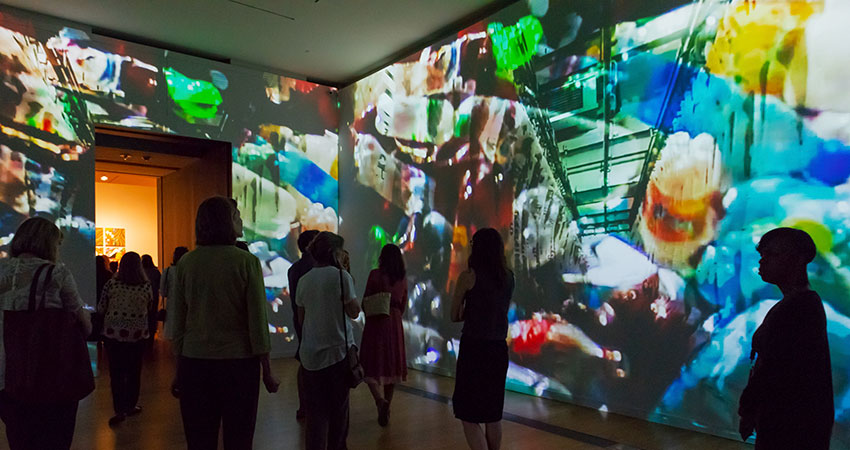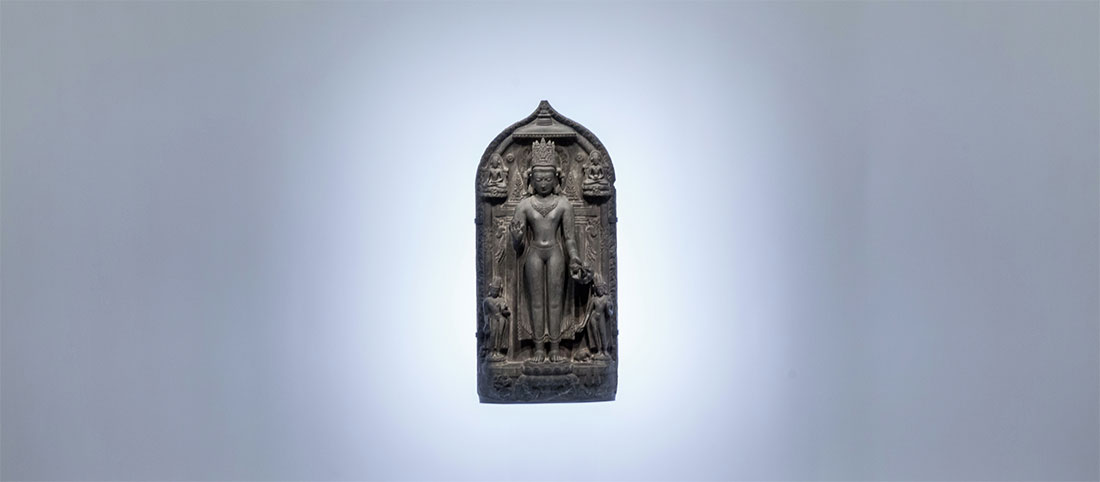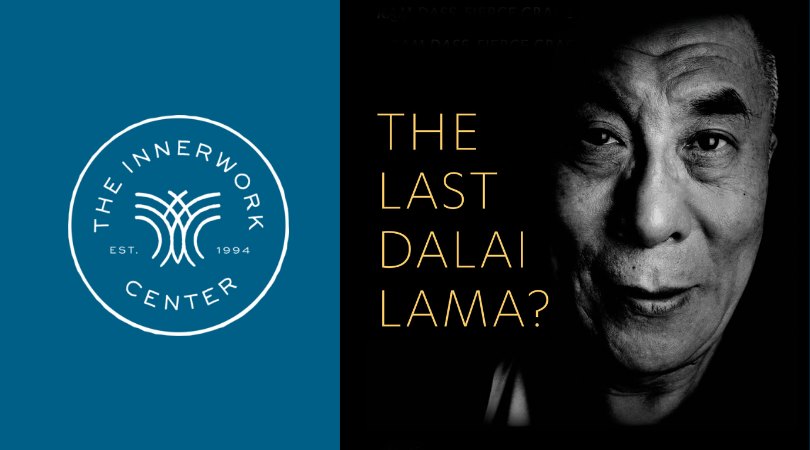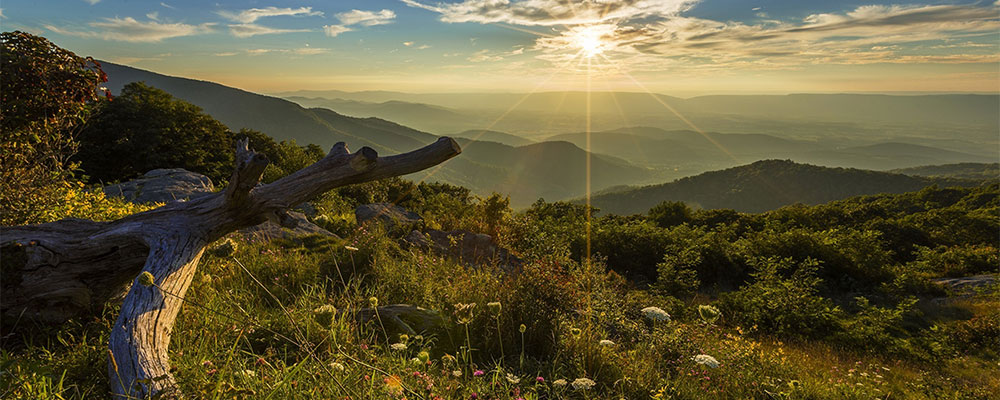
At the Virginia Museum of Fine Arts, Awaken: A Tibetan Buddhist Journey Toward Enlightenment asks a thought-provoking question: are we really awake and fully aware, or do the clamor and fragmentation of our lives lull us into a kind of waking sleep?
The exhibition invites you to pause from the busyness of daily life and take a contemplative journey from clamor to clarity. For visitors of all religions and cultural backgrounds, the exhibition is “not only an opportunity to see world-class Buddhist art but also a chance for you to take a reflective journey of self-discovery,” explains VMFA’s Dr. John Henry Rice, E. Rhodes and Leona B. Carpenter Curator of South Asian and Islamic Art.
If you’re interested in taking a reflective journey or just a few steps toward powering down from the chaos of daily life, here are seven tips for seeking clarity and a little inner peace.

1. Visit the exhibition. Whether as an active participant or simply an art-appreciating viewer, you’re invited to power down and unplug, figuratively, from unrelenting internal and external distractions and explore what it might mean to be enlightened or awake in the Tibetan Buddhist tradition. How can an art exhibition do that? The answer is in the design. Rice envisioned a “journey” that unfolds over a series of immersive spaces, and VMFA’s exhibition design teams—inspired by Rice’s vision—used sound, lighting, and graphics to create an exhibition unlike any other in VMFA’s history.
Get a behind the scenes look at the Awaken exhibition

2. Pick up a good book and find a cool, quiet spot for summertime reading. As a companion to Awaken: A Tibetan Buddhist Journey Toward Enlightenment, the exhibition catalogue not only presents the spectacular Himalayan art on display but also explores the philosophical tenets encoded in the works and details an immersive process of self-discovery. Additional essays by a range of contributors examine Tibetan Buddhism’s ritual tools, paintings, symbolic imagery, and artistic traditions.

3. Attend the Byrd Theatre’s screening of The Last Dalai Lama? on Tuesday, June 25, hosted by The Innerwork Center. The film’s director, Mickey Lemle, will be at the screening and will take questions. Tickets are $10 and proceeds benefit scholarships at The Innerwork Center. The film looks at the Dalai Lama’s impact, including his influence in educational and spiritual matters and his personal feelings on aging and dying, while asking the question “Will there be a fifteenth in his lineage, or will he be the last?”
On July 6, celebrate the Dalai Lama’s 84th birthday at VMFA where members of Richmond’s Kagyu Shenpen Tharchin Tibetan Buddhist sangha will be chanting in the museum’s Atrium for the special occasion.
4. Declutter your living space. It’s that project you dread but can no longer ignore. Start small. Focus on your closets or on that one room you’ve labeled a disaster zone. Or you might want to take the approach proposed by famed decluttering expert, author, and Netflix star Marie Kondo. Founder of KonMari Media, Inc., Kondo has become an international sensation. Her trademarked KonMari Method™ involves keeping only things that bring joy and discarding or “letting go” of the rest. She encourages decluttering and organizing by category rather than by room: beginning with clothes; continuing with books, papers, and miscellaneous items; and finishing with sentimental items. Decluttering—regardless of the approach you take—can help manage stress and anxiety and improve clarity and focus.

5. Take a break from technology. As Henry David Thoreau advised in Walden, “Simplicity, simplicity, simplicity! I say, let your affairs be as two or three, and not a hundred or a thousand; instead of a million count half a dozen, and keep your accounts on your thumb-nail.”
All day, every day, we are obsessed with keeping accounts. We track steps and likes, and photograph everything. Above all else, we stay connected. We text, reply to emails, scroll through Facebook and Instagram, use FaceTime, and answer phone calls wherever we are—in the car, at the grocery store, on that much-needed walk, or at lunch with a dear friend. The distractions and sensory overload can take a toll on our well-being and relationships.
Consider “fasting” from technology or at least your cell phone. Clear your mind, stay focused on the present, and connect with the person in your presence. Even if it’s only for a couple of hours a day, the break will give your mind and nerves a rest. Use the time to meditate, pray, exercise, spend time with a loved one, write in your journal, or do whatever is most meaningful to you. All of the world’s major religions incorporate fasting from food. To gain spiritual benefits and reduce stress, apply the ancient practice to modern-day gadgets.
6. Explore your own religion’s teachings on compassion and kindness. We can all agree that being compassionate and kind are universally lauded attributes. Whether you practice a religion or not, you probably agree that the “golden rule” of treating others as you would like to be treated is a good thing. Consider the role of compassion and loving kindness in your own life. Become an intentional practitioner, a do-er, of compassion and kindness in your own community. Look into the many Richmond-area service organizations—from food pantries and homeless shelters to mentoring programs and environmental work. Feed the homeless, teach an adult how to read, mentor a child, or spend time with an elderly shut-in. Consider reaching out to an organization like VolunteerMatch to help you find a place where you can get involved and make a difference. You can also look into opportunities through the United Way or community-service initiatives at your place of employment.
7. Spend time outdoors. In sacred texts, literature, and real life, too, nature is a common setting for dramatic transformation. You may not aspire to having a “wilderness experience” or achieving enlightenment under a Bodhi Tree, but there is no doubt that being in the great outdoors can do wonders for the body and mind. If you want to begin your journey toward clarity, there’s no better place to start than in nature. Walk one of Richmond’s many trails, take a bike ride along part of the Capital Trail from Richmond to Jamestown, plant a garden or tree in your own backyard, volunteer to clean up the James River, or drive out west to Shenandoah National Park for the breathtaking views along Skyline Drive and a peaceful picnic.
Awaken: A Tibetan Buddhist Journey Toward Enlightenment is organized by the Virginia Museum of Fine Arts. The exhibition program at VMFA is supported by the Julia Louise Reynolds Fund.
